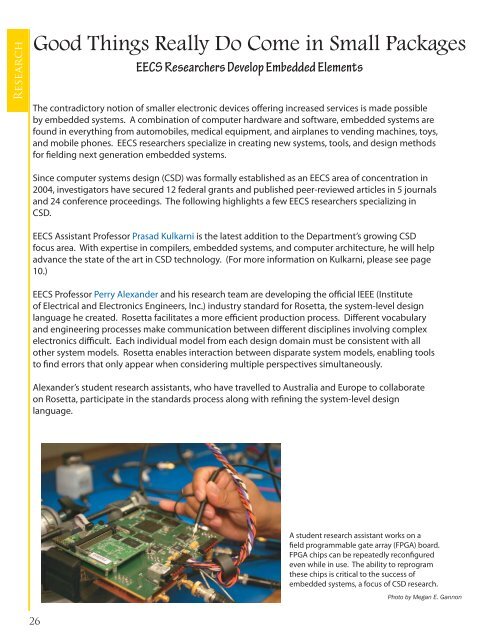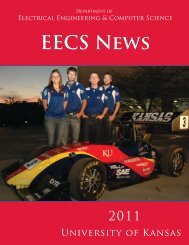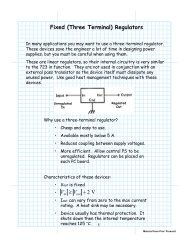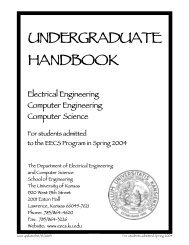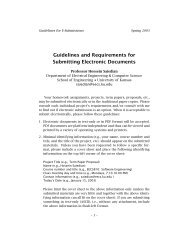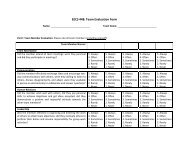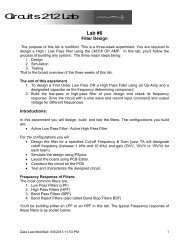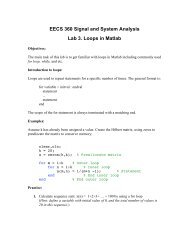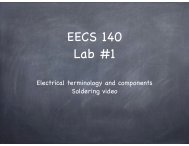EECS News Final 1.30.indd - Electrical Engineering and Computer ...
EECS News Final 1.30.indd - Electrical Engineering and Computer ...
EECS News Final 1.30.indd - Electrical Engineering and Computer ...
You also want an ePaper? Increase the reach of your titles
YUMPU automatically turns print PDFs into web optimized ePapers that Google loves.
Research<br />
Good Things Really Do Come in Small Packages<br />
<strong>EECS</strong> Researchers Develop Embedded Elements<br />
The contradictory notion of smaller electronic devices offering increased services is made possible<br />
by embedded systems. A combination of computer hardware <strong>and</strong> software, embedded systems are<br />
found in everything from automobiles, medical equipment, <strong>and</strong> airplanes to vending machines, toys,<br />
<strong>and</strong> mobile phones. <strong>EECS</strong> researchers specialize in creating new systems, tools, <strong>and</strong> design methods<br />
for fielding next generation embedded systems.<br />
Since computer systems design (CSD) was formally established as an <strong>EECS</strong> area of concentration in<br />
2004, investigators have secured 12 federal grants <strong>and</strong> published peer-reviewed articles in 5 journals<br />
<strong>and</strong> 24 conference proceedings. The following highlights a few <strong>EECS</strong> researchers specializing in<br />
CSD.<br />
<strong>EECS</strong> Assistant Professor Prasad Kulkarni is the latest addition to the Department’s growing CSD<br />
focus area. With expertise in compilers, embedded systems, <strong>and</strong> computer architecture, he will help<br />
advance the state of the art in CSD technology. (For more information on Kulkarni, please see page<br />
10.)<br />
<strong>EECS</strong> Professor Perry Alex<strong>and</strong>er <strong>and</strong> his research team are developing the official IEEE (Institute<br />
of <strong>Electrical</strong> <strong>and</strong> Electronics Engineers, Inc.) industry st<strong>and</strong>ard for Rosetta, the system-level design<br />
language he created. Rosetta facilitates a more efficient production process. Different vocabulary<br />
<strong>and</strong> engineering processes make communication between different disciplines involving complex<br />
electronics difficult. Each individual model from each design domain must be consistent with all<br />
other system models. Rosetta enables interaction between disparate system models, enabling tools<br />
to find errors that only appear when considering multiple perspectives simultaneously.<br />
Alex<strong>and</strong>er’s student research assistants, who have travelled to Australia <strong>and</strong> Europe to collaborate<br />
on Rosetta, participate in the st<strong>and</strong>ards process along with refining the system-level design<br />
language.<br />
A student research assistant works on a<br />
field programmable gate array (FPGA) board.<br />
FPGA chips can be repeatedly reconfigured<br />
even while in use. The ability to reprogram<br />
these chips is critical to the success of<br />
embedded systems, a focus of CSD research.<br />
Photo by Megan E. Gannon<br />
26


